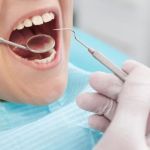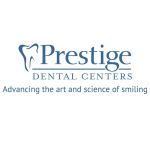1. Gum Infection Prevention Tips
After undergoing oral surgery, preventing gum infection is crucial for ensuring a smooth recovery. In the first few days after surgery, it's essential to follow your dentist's instructions precisely. This includes keeping the surgical area clean and avoiding any activity that may disturb the healing process, such as smoking or excessive touching of the area. One key tip is to rinse with an antibacterial mouthwash, which can reduce the risk of infection.
2. Importance of Good Hygiene
Maintaining excellent oral hygiene is one of the most important steps in preventing gum infection after oral surgery. Gently brushing your teeth and using an antimicrobial mouthwash can help to eliminate bacteria that could cause infection. It is recommended to avoid brushing the surgical area until it is fully healed, but keeping your mouth clean is essential. Regular visits to your dentist or oral surgeon for follow-up appointments will ensure your recovery is on track and help identify any early signs of infection.
3. Dietary Guidelines to Avoid Infection
What you eat after oral surgery can also play a role in preventing gum infections. It's important to avoid hard, crunchy, or spicy foods that could irritate the wound site. Instead, opt for soft, nutrient-rich foods like soups, smoothies, and mashed potatoes. Foods high in vitamin C, like citrus fruits, can help with tissue healing and boosting your immune system. Staying hydrated is also key to ensuring the body's natural healing process is not disrupted.
4. Case Study: Success Story of Post-oral Surgery Recovery
Consider the case of Sarah, who underwent wisdom tooth extraction and was concerned about the potential risk of gum infection. By following all hygiene instructions, maintaining a soft-food diet, and using prescribed mouthwashes, she was able to recover without any complications. Her dentist credited her careful attention to the healing process, and she was able to resume her normal activities just a week after surgery.
5. Recommended Products to Prevent Infection
To support your recovery, there are various products available that can help prevent gum infections after surgery. Antibacterial mouthwashes, soft-bristled toothbrushes, and healing gels are all excellent options. You can visit Dentistry Toothtruth for expert recommendations on products that promote healing and prevent post-surgery complications. Always consult your dentist before purchasing any new oral care products to ensure they are appropriate for your condition.







 Cumming Dental Implant Center5.0 (1 review)
Cumming Dental Implant Center5.0 (1 review) Thai & Kiourtsis Orthodontics5.0 (66 review)
Thai & Kiourtsis Orthodontics5.0 (66 review) The Smilist Dental Syosset4.0 (354 review)
The Smilist Dental Syosset4.0 (354 review) Cottonwood Heights Dentistry4.0 (24 review)
Cottonwood Heights Dentistry4.0 (24 review) Sterling Rogers, DDS4.0 (35 review)
Sterling Rogers, DDS4.0 (35 review) Aurora Family Dental4.0 (24 review)
Aurora Family Dental4.0 (24 review) The Importance of Oral Health Education During Pregnancy for a Healthy Pregnancy
The Importance of Oral Health Education During Pregnancy for a Healthy Pregnancy Best Tips for Brushing Your Teeth Properly for Healthy Gums: Essential Techniques for Oral Health
Best Tips for Brushing Your Teeth Properly for Healthy Gums: Essential Techniques for Oral Health Why Skipping Dental Checkups Can Lead to Bigger Oral Health Problems
Why Skipping Dental Checkups Can Lead to Bigger Oral Health Problems Advantages of Porcelain Dental Restorations
Advantages of Porcelain Dental Restorations How Can Diabetes Cause Tooth and Gum Problems? Preventing and Managing Oral Health Issues
How Can Diabetes Cause Tooth and Gum Problems? Preventing and Managing Oral Health Issues Healthy Habits for Promoting Good Oral Health and Hygiene: Tips for a Healthy Smile
Healthy Habits for Promoting Good Oral Health and Hygiene: Tips for a Healthy Smile